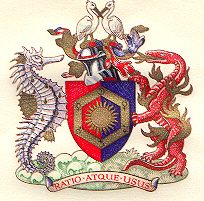
The Royal Society of Edinburgh is Scotland's national academy of science and letters. It is a registered charity, operating on a wholly independent and non-party-political basis and providing public benefit throughout Scotland. It was established in 1783. As of 2017, it has more than 1,660 Fellows.

The Royal Institute of Chemistry was a British scientific organisation.
The Royal Scottish Society of Arts is a learned society in Scotland, dedicated to the study of science and technology. It was founded as The Society for the Encouragement of the Useful Arts in Scotland by Sir David Brewster in 1821 and dedicated to "the promotion of invention and enterprise". The Society was granted a Royal Charter in 1841.
The Flavelle Medal is an award of the Royal Society of Canada "for an outstanding contribution to biological science during the preceding ten years or for significant additions to a previous outstanding contribution to biological science". It is named in honour of Joseph Wesley Flavelle and is awarded bi-annually. The award consists of a gold plated silver medal.
The Royal Society of Tropical Medicine and Hygiene, more commonly known by its acronym RSTMH, was founded in 1907 by Sir James Cantlie and George Carmichael Low. Sir Patrick Manson, the Society's first President (1907–1909), was recognised as "the father of tropical medicine" by his biographer. He passed the post on to Sir Ronald Ross, discoverer of the role of mosquitoes in the transmission of malaria.
The Murchison Medal is an academic award established by Roderick Murchison, who died in 1871. First awarded in 1873, it is normally given to people who have made a significant contribution to geology by means of a substantial body of research and for contributions to 'hard' rock studies. One of the closing public acts of Murchison’s life was the founding of a chair of geology and mineralogy in the University of Edinburgh. Under his will there was established the Murchison Medal and geological fund to be awarded annually by the council of the Geological Society of London.

David Torrence was a Scottish film actor. He appeared in 104 films between 1913 and 1939. He has a star on the Hollywood Walk of Fame. He was the brother of actor Ernest Torrence. He was born in Edinburgh, Scotland and died in Los Angeles, California. He is interred at Inglewood Park Cemetery.
The Meldola Medal and Prize was awarded annually from 1921-1979 by the Chemical Society and from 1980–2008 by the Royal Society of Chemistry to a British chemist who was under 32 years of age for promising original investigations in chemistry. It commemorated Raphael Meldola, President of the Maccabaeans and the Institute of Chemistry. The prize was the sum of £500 and a bronze medal.
The Peter Nicol Russell Memorial Medal is awarded by Engineers Australia. It has been awarded since 1923, when its first recipient was Prof William Henry Warren. It is given annually to an Honorary Fellow of Engineers Australia who has significantly advanced engineering in Australia. The award consists of a framed certificate and medal.



